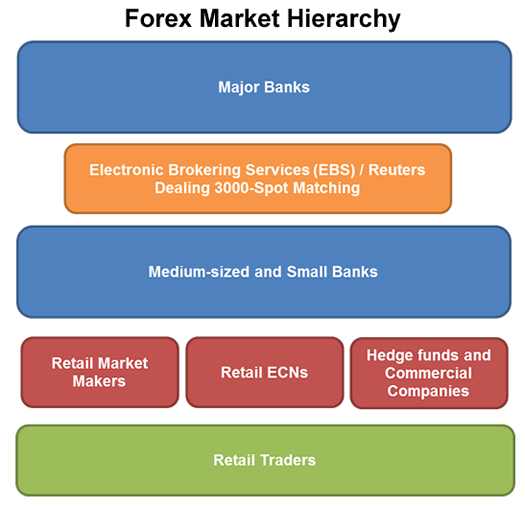Imagine the dynamic dance of currencies flowing across borders, shaping economies and forging global connections. This captivating choreography unfolds within the vast expanse of the international forex market. Join us as we embark on a journey to unravel the complex structure of this enigmatic financial realm.
Image: phantomtradingfx.com
Over the centuries, the exchange of currencies has played a pivotal role in facilitating international trade and fostering economic growth. Today, the forex market stands as a decentralized and globalized marketplace, where currencies from around the world are bought, sold, traded, and exchanged.
The Participants
The international forex market is a vibrant tapestry of participants, each playing a unique role in its intricate ecosystem.
Commercial Banks: As the backbone of the forex market, commercial banks facilitate the vast majority of currency transactions. They act as intermediaries between their clients, who exchange currencies for various purposes, such as international trade, investments, and hedging.
Central Banks: The guardians of monetary policy, central banks play a vital role in managing their respective currencies’ value. Through targeted interventions and policy adjustments, they aim to maintain price stability and foster economic growth.
Investment Banks: These specialized financial institutions provide sophisticated trading services to institutional investors, offering tailored solutions and leveraging their analytical expertise to maximize trading success.
The Platforms and Instruments
The expansion of technology has transformed the forex market, creating new channels for currency trading and introducing a diverse range of instruments.
Electronic Trading Platforms (ETPs): Automated and highly liquid, ETPs revolutionized the forex market, empowering traders with instantaneous execution and transparent pricing.
Spot Forex: This widely recognized instrument involves the immediate purchase or sale of currencies at prevailing market rates. Spot trading is ideal for short-term transactions.
Forward Forex: Forward contracts provide a means for traders to hedge against currency fluctuations in the future, locking in a specific exchange rate for a predetermined period.
The Dynamics
The forex market is a ceaselessly evolving landscape, shaped by a confluence of factors that drive currency price movements.
Economic Indicators: Data releases, such as GDP growth, inflation rates, and interest rate decisions, profoundly impact currency values, providing insights into the economic health and outlook of individual countries.
Geopolitical Events: Political stability, wars, and natural disasters can trigger significant market volatility, as investors recalibrate their risk appetite and adjust currency positions.
Speculation: The forex market is also influenced by the speculative activities of traders, who capitalize on short-term price fluctuations to make a profit.

Image: berita-forex24.blogspot.com
Tips and Strategies
In the realm of forex trading, knowledge and strategy are indispensable. Here are some valuable tips to enhance your navigation:
Research and Understanding: Stay informed about economic conditions, global affairs, and currency trends. Comprehension empowers decision-making.
Risk Management: Prudent risk management is paramount. Leverage and margin trading should be approached with caution, understanding the potential for both profits and losses.
FAQs on the International Forex Market
A: The forex market facilitates international trade, enables investments, and serves as a hedging tool against currency risk.
Q: Which factors drive currency price movements?
A: Economic indicators, geopolitical events, and speculation all play a role in shaping currency values.
Q: How can I participate in the forex market?
A: You can access the forex market through a currency broker or an electronic trading platform.
Q: What are the different types of forex instruments?
A: Spot forex, forward forex, and currency options are common instruments used in the forex market.
Q: What is the role of central banks in the forex market?
A: Central banks manage their currencies’ value through monetary policy interventions and interest rate adjustments.
Structure Of International Forex Market
Conclusion
The international forex market is a vast and intricate realm of currency exchange, offering opportunities for global economic growth and discerning traders. Understanding its structure, dynamics, and strategies empowers you to navigate this dynamic landscape effectively. Embark on this fascinating journey, explore the intricacies of the forex market, and unlock its boundless potential.
Are you ready to delve into the enthralling world of forex trading? Share your thoughts and questions in the comments below.






